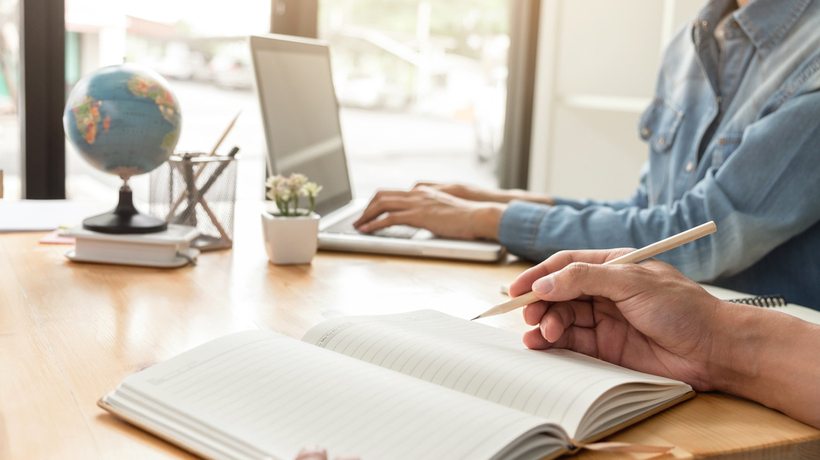eLearning Lesson Plans Presented In 2017: A List With The 10 Most Popular
eLearning has become a common presence in today’s schools. With the internet, teachers can now address state standards, track student grades, and develop lessons in a flash. As more schools adopt digital tools, more teachers are incorporating eLearning into their classrooms to help their students succeed.
But which lessons are teachers using? We crunched the numbers on the most popular eLearning lesson plans we could find, and the results are staggering. Do you use these lesson plans in your classroom?
1. Microsoft Office

Microsoft Office is by far the #1 most popular online query when it comes to lesson plans. That’s because Microsoft certifies students as Microsoft Office Specialists (MOS) when they reach a certain level of proficiency. That proficiency requires students to pass exams on both Microsoft Word and Microsoft Excel—the company’s most popular software products. Microsoft actually provides study guides for both exams. But the textbook costs $25, the eBook costs $20, and both cost $45. For most students looking to get MOS certifications, these study guides are too expensive. They won’t pay dividends, and students can’t reuse them after they pass the exam. There’s still student demand to become MOS certified, but the resources are just too pricey to get them from Microsoft directly.
Instead, third-party publishers have taken advantage of this opportunity to create lesson plans of their own.
- Grade range: All.
- Pros: MOS certifications are in-demand by both students and employers.
- Cons: Google is growing in popularity over Microsoft.
2. Google Applications

Google Applications has become popular because it fosters collaboration among students. Whether students want to work in Google Docs, Sheets, or Slides, they can all access the same documents at the same time and modify them simultaneously. Understanding Google Applications means students understand some of the most powerful digital products in the world. With enough practice, they can even take the place of Microsoft, as many teachers have already discovered.
- Grade range: All.
- Pros: Free to use and collaborative.
- Cons: Requires an internet connection to fully work.
3. Career Exploration

Career exploration helps students find their passions and turn them into job opportunities. As a result, these lesson plans are some of the most popular in late elementary, and early middle school. After all, students can recognize more opportunities to succeed in life if they know where they want to succeed from an early age. These lessons allow students to research careers they think they’d want. Most lessons also encourage students to research related careers, some of which students may have never known otherwise. The results are focused, informed students who can learn with a sense of purpose. School no longer becomes about learning. It’s now about how learning applies to students’ ambitions.
- Grade range: 6-12.
- Pros: Applicable to every student.
- Cons: Job demand always changes—sometimes overnight.
4. Career Readiness

Career readiness is the practice of prepping students with the basic skills they’ll need in most jobs. This includes universals like keyboarding, software usage, computer proficiency, and more. In some cases, it can also refer to "soft skills"—general capabilities that every student should have. Those could include everything from written communication to interviewing skills. Regardless of what you teach specifically, the point is to make students feel more comfortable with the career process, especially when they’re just looking.
- Grade range: 6-12.
- Pros: Applicable to every student.
- Cons: Some students may consider this "common sense".
5. Business Education

Business education is a catchall curriculum that covers just about everything related to starting, running, and growing a business. While some states have standards for business education, most areas in the United States don’t. That means business teachers either need business experience or at least training in business to successfully teach it. When they don’t, they turn to eLearning and digital curriculum for help.
- Grade range: 8-12, career and technology centers.
- Pros: Applicable to nearly any career.
- Cons: States use different standards, so some lessons may not fit your classroom.
6. Employability Skills

Employability skills teach students the proper behavior to show in order to land a job. These lessons frequently overlap with career readiness. But instead of helping students figure out what they want to do, employability skills show students how to do it. As a result, employability has become immensely popular for middle and high school.
- Grade range: 8-12, career and technology centers.
- Pros: Applicable to every student.
- Cons: States use different standards, so some lessons may not fit your classroom.
7. Marketing

Marketing is one of the most popular careers in the United States right now. With the advent of the internet, marketing has expanded from television commercials and billboards to Google ads and social media promotion. Knowledge as diverse as data analysis, public relations, and radio all fall under the marketing umbrella. It’s also a career that’s constantly in demand. Students always want to know more about marketing, and when they learn it at an early age, they can jumpstart their careers.
- Grade range: 9-12, career and technology centers.
- Pros: Marketing is a popular, well-rounded career choice.
- Cons: Elective-only in most areas.
8. Life Skills

Life skills are most often sought out by teachers of special education, emotional support, and independent education plans. Often, life skills lessons cover everyday tasks that most people take for granted. Concepts like scheduling, socializing, listening, and politeness are all encapsulate in life skills. Some teachers may cover other ideas as well, like navigation, following instructions, and patience. While every teacher has different needs for their classes, the umbrella of life skills has become immensely popular for reaching out to students who need a little extra boost to succeed in everyday life.
- Grade range: 6-12, especially special education.
- Pros: Includes empathy, sympathy, patience, and other emotional support help.
- Cons: Some students may consider this "common sense".
9. Soft Skills

When soft skills aren’t included in career readiness lessons, teachers often choose to focus on soft skills as a separate topic. The first lesson almost always revolves around communication skills. This forms the foundation for most other skills, including writing and interviewing. It’s important to note that a soft skills curriculum never includes evaluations like software proficiency.
Instead, these lessons focus on more ethereal qualities that some students may never learn otherwise, like professional etiquette. It’s true that some students may consider these skills common sense. But that’s okay—it never hurts to have a refresher course. For other students, these lessons could literally change their lives.
- Grade range: 8-12.
- Pros: These skills are rarely taught in other classes.
- Cons: Some students may consider this "common sense".
10. Entrepreneurship

Entrepreneurship may not be the most popular eLearning lessons right now, but they’re growing in popularity by the day. This is because the US economy has become increasingly startup-focused, especially for teenage students in major cities. Social media and television constantly celebrates the triumphs of tech-centric entrepreneurs like Mark Zuckerberg, Larry Page, and Sergey Brin. As a result, entrepreneurship has become the "fast-track" to wealth, regardless of how much work it actually takes to make that wealth happen.
In this respect, many teachers are responding to student demand for this subject. Entrepreneurship is often taught as an elective. But as more students take those electives, teachers need more resources—especially eLearning resources.
- Grade range: 9-12.
- Pros: Any student can have an idea that’ll become the next Google.
- Cons: Without business education, many principles in this class may not make sense.
Do You Use These Lesson Plans In Your Classroom?
Have you adopted any of these lessons for your class? Have you noticed other trends in the eLearning community throughout 2017? Let me know in the comments!









